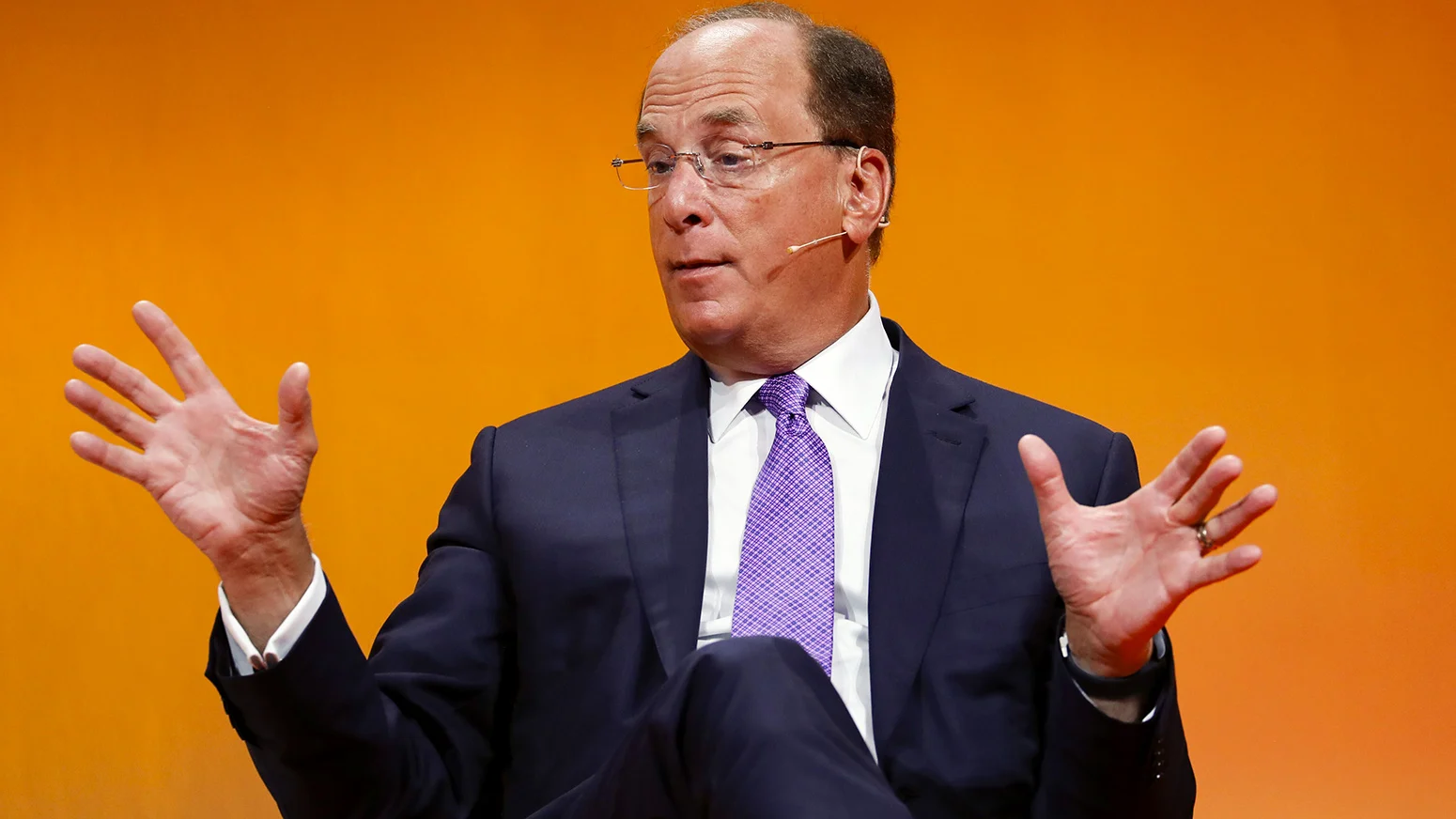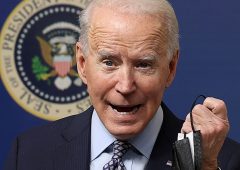BlackRock CEO Makes Bold Prediction About U.S. Economy’s Future
25.01.2025 21:00 2 min. read Kosta Gushterov
Larry Fink, the CEO of BlackRock, shared his outlook on U.S. interest rates, suggesting that while a rate cut might be possible in the near future, an increase could be on the horizon if the economy continues its strong performance.
Speaking at the World Economic Forum in Davos, Switzerland, Fink acknowledged the potential for rate hikes beyond the next year, although he emphasized that this wasn’t his primary forecast.
He highlighted several key factors that could lead to continued inflation, such as labor shortages and rising wages. While higher wages are generally seen as a positive for workers, Fink pointed out that they could also contribute to inflationary pressures. He further noted that shortages in materials, particularly in industries related to large-scale infrastructure and energy transitions, could exacerbate these inflationary trends.
Fink also addressed the bond market, remarking that the yield curve had normalized after a period of inversion caused by high inflation. However, he warned that expectations of future inflation might lead to a steeper yield curve moving forward. On a global scale, Fink expressed concern about rising deficits and debt levels, pointing out that these factors could drive up the costs of financing and push long-term bond yields higher.
Overall, Fink painted a picture of a robust economy, citing strong corporate earnings and positive labor market data. While he didn’t foresee immediate rate cuts, he suggested that further data over the coming months would be crucial in determining whether the Fed might eventually raise rates again.
-
1
U.S. PCE Inflation Rises for First Time Since February, Fed Rate Cut Likely Delayed
27.06.2025 18:00 1 min. read -
2
Key U.S. Economic Events to Watch Next Week
06.07.2025 19:00 2 min. read -
3
Gold Beats U.S. Stock Market Over 25 Years, Even With Dividends Included
13.07.2025 15:00 1 min. read -
4
U.S. Announces Sweeping New Tariffs on 30+ Countries
12.07.2025 16:30 2 min. read -
5
US Inflation Heats Up in June, Fueling Uncertainty Around Fed Cuts
15.07.2025 16:15 2 min. read
US Inflation Heats Up in June, Fueling Uncertainty Around Fed Cuts
U.S. inflation accelerated in June, dealing a potential setback to expectations of imminent Federal Reserve rate cuts.
Gold Beats U.S. Stock Market Over 25 Years, Even With Dividends Included
In a surprising long-term performance shift, gold has officially outpaced the U.S. stock market over the past 25 years—dividends included.
U.S. Announces Sweeping New Tariffs on 30+ Countries
The United States has rolled out a broad set of new import tariffs this week, targeting over 30 countries and economic blocs in a sharp escalation of its trade protection measures, according to list from WatcherGuru.
Key U.S. Economic Events to Watch Next Week
After a week of record-setting gains in U.S. markets, investors are shifting focus to a quieter yet crucial stretch of macroeconomic developments.
-
1
U.S. PCE Inflation Rises for First Time Since February, Fed Rate Cut Likely Delayed
27.06.2025 18:00 1 min. read -
2
Key U.S. Economic Events to Watch Next Week
06.07.2025 19:00 2 min. read -
3
Gold Beats U.S. Stock Market Over 25 Years, Even With Dividends Included
13.07.2025 15:00 1 min. read -
4
U.S. Announces Sweeping New Tariffs on 30+ Countries
12.07.2025 16:30 2 min. read -
5
US Inflation Heats Up in June, Fueling Uncertainty Around Fed Cuts
15.07.2025 16:15 2 min. read


